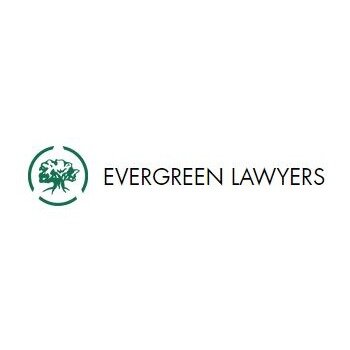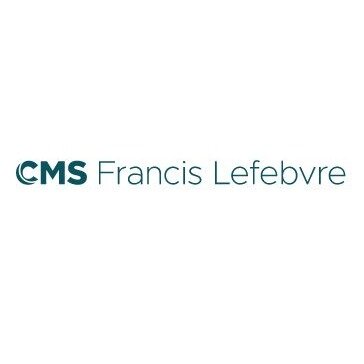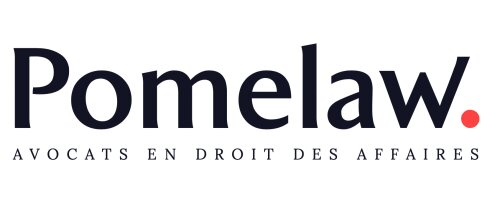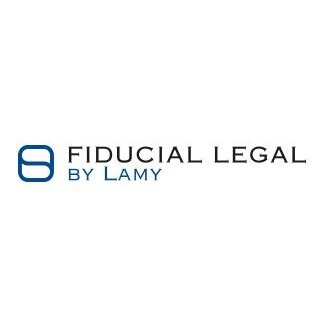Best Private Equity Lawyers in Lyon
Share your needs with us, get contacted by law firms.
Free. Takes 2 min.
List of the best lawyers in Lyon, France
About Private Equity Law in Lyon, France
Private Equity refers to investment activities where funds or individuals directly invest in private companies or conduct buyouts of public companies, resulting in the delisting of public equity. In Lyon, France, Private Equity is an active and important part of the local financial landscape. The city is a dynamic hub for both entrepreneurial ventures and established companies, making it attractive for private equity investments. Lyon offers a well-established legal infrastructure and a network of experienced professionals specializing in investment management, mergers and acquisitions, and corporate finance law.
Legal professionals in Lyon typically help facilitate Private Equity transactions while ensuring compliance with both national and international regulations. They provide expertise in structuring deals, negotiating investment terms, and advising on company law, employment law, competition law, and tax law, all of which are highly relevant to the Private Equity market in Lyon.
Why You May Need a Lawyer
The complexity of Private Equity transactions in Lyon makes engaging a qualified lawyer essential. Some common situations where legal counsel is valuable include:
- Negotiating and drafting investment agreements for investors or companies.
- Performing due diligence on target companies before a transaction.
- Structuring cross-border investments or mergers and acquisitions.
- Ensuring compliance with French and European regulatory requirements.
- Advising on shareholder agreements and managing shareholder disputes.
- Assisting with corporate restructurings and exit strategies such as initial public offerings or trade sales.
- Providing tax guidance for both businesses and individual investors to optimize investment returns.
- Handling employment law aspects during transitions or takeovers.
An experienced Private Equity lawyer helps protect your interests, minimizes legal risk, and facilitates smoother transactions.
Local Laws Overview
Private Equity activity in Lyon operates under the broader regulatory framework of French and European Union law. Key local legal considerations include:
- Company Law: The French Commercial Code governs company formation, management, shareholder rights, and statutory obligations. Deals typically involve Société par Actions Simplifiée (SAS) or Société Anonyme (SA) entities.
- Contract Law: Contracts relating to investments, shareholder agreements, warranties, and representations must comply with French civil law principles.
- Financial Regulation: The Autorité des Marchés Financiers (AMF) supervises market activities, disclosure obligations, and anti-money laundering compliance.
- Tax Law: Private Equity transactions are subject to specific tax rules regarding capital gains, withholding taxes, and carried interest.
- Employment Law: Collective bargaining, employee consultation, and labor contract transfers during buyouts or restructuring are heavily regulated.
- Competition Law: Large transactions may require clearance from the French Competition Authority, especially if the deal could impact market competition in France or the EU.
Local counsel ensures that Private Equity investments in Lyon are structured efficiently and lawfully, catering to both regional specifics and international best practices.
Frequently Asked Questions
What is Private Equity and how is it different from venture capital?
Private Equity refers to investing in established private companies or in takeovers of public companies to make them private. Venture capital, by contrast, typically focuses on investing in start-ups or early stage companies. Private Equity investments often involve larger sums and more mature companies.
Do Private Equity deals in Lyon require regulatory approval?
Some transactions, especially those involving regulated sectors, large investments, or cross-border operations, may require approval from regulatory authorities such as the Autorité des Marchés Financiers (AMF) or the French Competition Authority.
What are the typical legal issues that arise in Private Equity transactions?
Common legal issues include company valuation, negotiating warranties and indemnities, compliance with employment regulations, tax structuring, anti-money laundering, and fulfilling market disclosure obligations.
Which corporate structures are most commonly used in Private Equity deals in Lyon?
The Société par Actions Simplifiée (SAS) and Société Anonyme (SA) are the most common company forms used due to their flexible governance and clear rules regarding shareholder participation.
How are employees affected during a Private Equity buyout?
French law provides strong protection for employees. Employee representatives may need to be consulted before a deal completes, and there may be procedures regarding information and negotiation about potential changes stemming from the transaction.
How is confidentiality handled in Private Equity negotiations?
Confidentiality agreements, also known as non-disclosure agreements, are standard practice in preliminary stages to protect sensitive commercial information and trade secrets.
Can foreign investors participate in Private Equity deals in Lyon?
Yes, foreign investors are welcome, though certain sectors may be subject to foreign investment screening or additional compliance requirements, especially in industries deemed strategic by the French government.
What is due diligence and why is it important?
Due diligence is a thorough investigation into the legal, financial, and operational standing of a target company. It helps investors assess potential risks and make informed decisions before finalizing a Private Equity deal.
What taxes apply to Private Equity profits in France?
Profits, including capital gains and carried interest, are subject to various tax rates depending on the structure of the investment and the residency of the investors. Professional advice is recommended to optimize tax obligations.
What happens if a dispute arises between shareholders?
Disputes are typically handled according to the shareholder agreement or company by-laws. If unresolved, parties may resort to mediation, arbitration, or court action in Lyon’s commercial courts.
Additional Resources
Several organizations and authorities in Lyon and France regulate or offer guidance regarding Private Equity:
- Autorité des Marchés Financiers (AMF): The main financial markets regulator.
- French Competition Authority (Autorité de la Concurrence): Oversees competition and merger control.
- French Private Equity Association (France Invest): A professional body providing industry updates and best practices.
- Chambre des Notaires du Rhône: Provides legal advice and guidance on corporate transactions.
- The Lyon Chamber of Commerce (CCI Lyon Métropole): Supports businesses and investors with local economic data and networking.
- Local law firms experienced in Private Equity and M&A law in Lyon.
Next Steps
If you are considering a Private Equity transaction or require legal advice in Lyon, France, here is how you can proceed:
- Determine your specific needs, such as investment structuring, regulatory compliance, or merger facilitation.
- Gather all relevant documents, such as company financials, existing contracts, and corporate by-laws.
- Contact a qualified lawyer or law firm specializing in Private Equity in Lyon.
- Prepare a list of questions or concerns to discuss with your legal advisor.
- Review and understand all proposed agreements before signing.
- Stay informed about your rights and obligations, especially regarding French and EU laws.
- Maintain open communication with all stakeholders throughout the investment process.
Professional legal support greatly increases your chances of successfully navigating the complex Private Equity landscape in Lyon. Taking organized and proactive steps will help you protect your interests and achieve your investment goals.
Lawzana helps you find the best lawyers and law firms in Lyon through a curated and pre-screened list of qualified legal professionals. Our platform offers rankings and detailed profiles of attorneys and law firms, allowing you to compare based on practice areas, including Private Equity, experience, and client feedback.
Each profile includes a description of the firm's areas of practice, client reviews, team members and partners, year of establishment, spoken languages, office locations, contact information, social media presence, and any published articles or resources. Most firms on our platform speak English and are experienced in both local and international legal matters.
Get a quote from top-rated law firms in Lyon, France — quickly, securely, and without unnecessary hassle.
Disclaimer:
The information provided on this page is for general informational purposes only and does not constitute legal advice. While we strive to ensure the accuracy and relevance of the content, legal information may change over time, and interpretations of the law can vary. You should always consult with a qualified legal professional for advice specific to your situation.
We disclaim all liability for actions taken or not taken based on the content of this page. If you believe any information is incorrect or outdated, please contact us, and we will review and update it where appropriate.
















